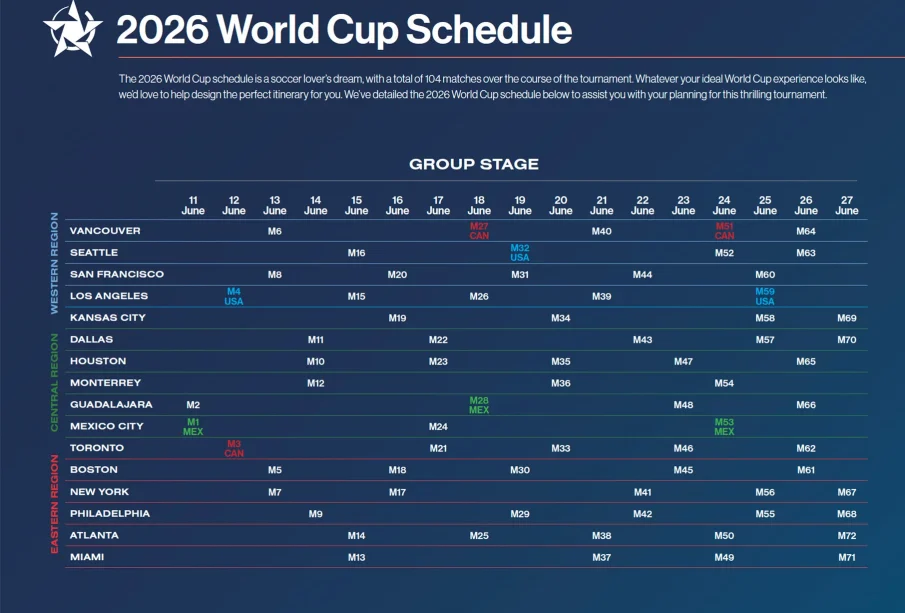Anticipating the 2026 World Cup: An Expansive Footprint

Introduction
The 2026 FIFA World Cup is poised to be a landmark event in football history, as it marks the first time the tournament will feature 48 teams instead of the traditional 32. Scheduled to be hosted by the United States, Canada, and Mexico, the competition is set to further elevate the popularity of football across North America and showcase the growing global appeal of the sport.
Expanded Format and Host Cities
The decision to expand the World Cup format to 48 teams will allow for more nations to participate, generating excitement among underrepresented countries in the sport. The tournament will be held in various cities across the three host nations, with the final expected to take place in a major U.S. venue like MetLife Stadium in New Jersey. Other cities such as Los Angeles, Toronto, and Mexico City are also in the spotlight for key matches.
Significance for North American Football
The 2026 World Cup is significant not only for its scale but also for its potential to transform football culture in North America. Major League Soccer (MLS) has experienced steady growth over the past decade, and hosting the World Cup is expected to further boost interest, investment, and youth participation in the sport. Local leagues and clubs are already ramping up their efforts to build stronger fan bases and improve infrastructure in anticipation of the global event.
Economic Impact and Tourism
Experts predict a substantial economic impact as a result of the 2026 World Cup. The influx of tourists, fans, and media representatives is expected to provide a considerable boost to local economies. Cities that host matches will benefit from increased revenue from hospitality, travel, and retail sectors. Moreover, this event offers a formidable opportunity to showcase North America as a diverse cultural hub with a vibrant football community.
Conclusion
The 2026 World Cup is set to be a pivotal moment for football, with implications that go beyond the pitch. The expanded format promises to involve more nations, while the collaboration between the host cities demonstrates unity through sport. As anticipation builds, the event positions itself as a catalyst for football’s growing presence in North America, enhancing the sport’s status on a global scale. It is important for fans, players, and officials alike to prepare for what promises to be an unforgettable chapter in the history of the World Cup.








